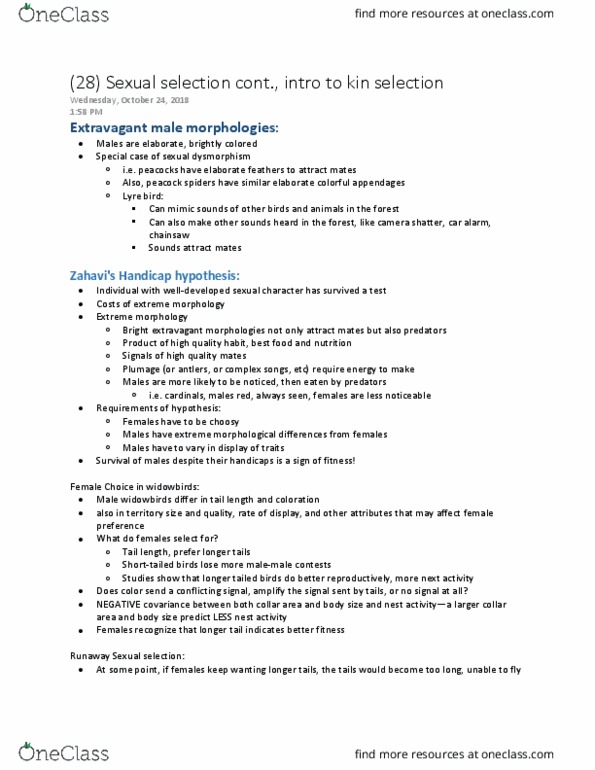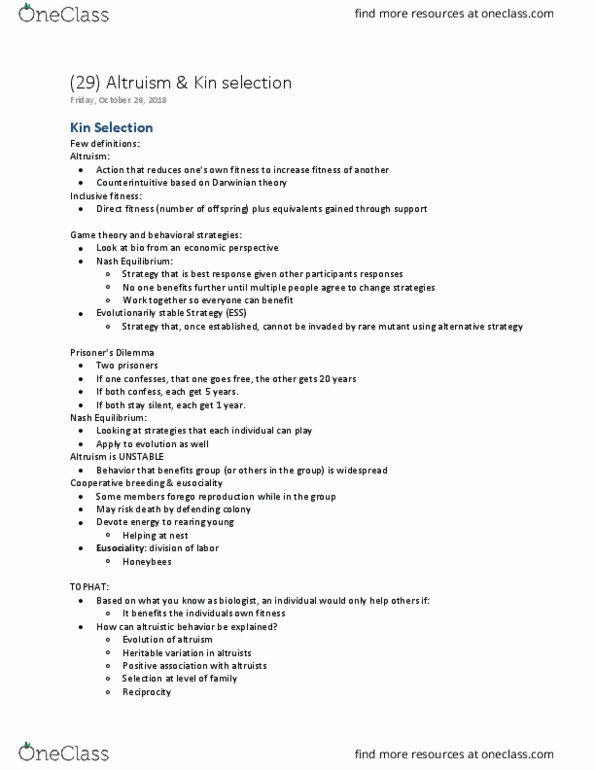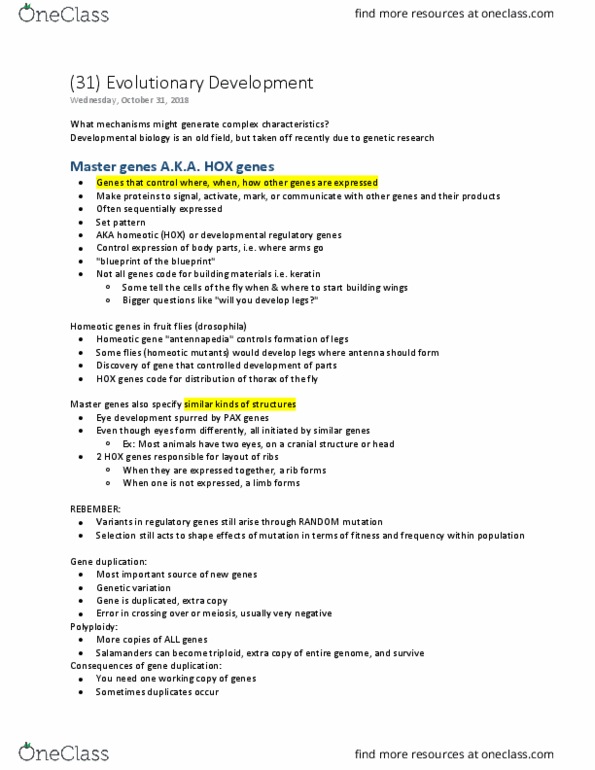BIOLOGY 1114 Lecture Notes - Lecture 29: Nash Equilibrium, Kin Selection, Eusociality
BIOLOGY 1114 verified notes
29/32View all
(29) Altruism & Kin selection
Friday, October 26, 2018
Kin Selection
Few definitions:
Altruism:
• Action that reduces one's own fitness to increase fitness of another
• Counterintuitive based on Darwinian theory
Inclusive fitness:
• Direct fitness (number of offspring) plus equivalents gained through support
Game theory and behavioral strategies:
• Look at bio from an economic perspective
• Nash Equilibrium:
o Strategy that is best response given other participants responses
o No one benefits further until multiple people agree to change strategies
o Work together so everyone can benefit
• Evolutionarily stable Strategy (ESS)
o Strategy that, once established, cannot be invaded by rare mutant using alternative strategy
Prisoner's Dilemma
• Two prisoners
• If one confesses, that one goes free, the other gets 20 years
• If both confess, each get 5 years.
• If both stay silent, each get 1 year.
Nash Equilibrium:
• Looking at strategies that each individual can play
• Apply to evolution as well
Altruism is UNSTABLE
• Behavior that benefits group (or others in the group) is widespread
Cooperative breeding & eusociality
• Some members forego reproduction while in the group
• May risk death by defending colony
• Devote energy to rearing young
o Helping at nest
• Eusociality: division of labor
o Honeybees
TOPHAT:
• Based on what you know as biologist, an individual would only help others if:
o It benefits the individuals own fitness
• How can altruistic behavior be explained?
o Evolution of altruism
o Heritable variation in altruists
o Positive association with altruists
o Selection at level of family
o Reciprocity
Document Summary
Altruism: action that reduces one"s own fitness to increase fitness of another, counterintuitive based on darwinian theory. Inclusive fitness: direct fitness (number of offspring) plus equivalents gained through support. If one confesses, that one goes free, the other gets 20 years. If both stay silent, each get 1 year. Looking at strategies that each individual can play: apply to evolution as well. Altruism is unstable: behavior that benefits group (or others in the group) is widespread. Some members forego reproduction while in the group: may risk death by defending colony, devote energy to rearing young, helping at nest, eusociality: division of labor, honeybees. Tophat: based on what you know as biologist, an individual would only help others if: It benefits the individuals own fitness: how can altruistic behavior be explained, evolution of altruism, heritable variation in altruists, positive association with altruists, selection at level of family, reciprocity.




